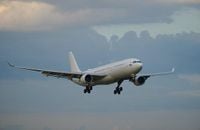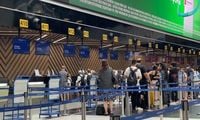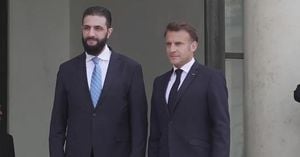On May 6, 2025, significant disruptions occurred at Moscow's Vnukovo and Domodedovo airports as temporary restrictions on aircraft arrivals and departures were implemented. The announcement came from Artem Korenyako, the press secretary of Rosaviatsiya, who shared the news via his Telegram channel at 18:19 Moscow time.
The restrictions were reportedly a response to a series of drone interceptions in the Moscow region. Earlier in the day, it was reported that two Ukrainian drones were shot down by air defense forces, one near Noginsk and the other over Shchelkovo. Preliminary assessments indicated that the Ukrainian Armed Forces may have used homemade drones of the Lyuty model. Footage published by Life.ru showed debris from these drones landing in a parking lot, narrowly missing parked cars.
In light of these developments, Moscow Mayor Sergei Sobyanin confirmed that another drone attack aimed at the capital had been successfully repelled on the same day. The situation led to the activation of a broader security measure known as Plan 'Kover,' which was initially announced for Zhukovsky airport but quickly extended to include Vnukovo and Domodedovo, as well as other airports in central Russia such as Nizhny Novgorod, Kaluga, Tambov, and Yaroslavl.
The implementation of Plan 'Kover' meant that flights were halted at these airports, causing significant delays and cancellations. Passengers found themselves stranded as dozens of flights were either delayed or redirected to other cities, including St. Petersburg, Saratov, and Kazan. Sheremetyevo airport, another major hub in Moscow, remained operational and began accepting redirected flights.
Reports indicated that the restrictions were not isolated to the capital's airports; several other airports across Russia also faced similar limitations. The operational constraints were first noted earlier in the night, with restrictions lifted in the morning before being reintroduced later in the day.
As the situation unfolded, emergency services were deployed to the crash sites to assess and manage the aftermath of the drone interceptions. The mayor's office and the Ministry of Defense provided updates on the ongoing situation, emphasizing the need for heightened security in light of the drone threats.
Travelers at Vnukovo and Domodedovo faced long waits and uncertainty as the crisis developed. Many expressed frustration over the lack of information regarding their flights, while others were concerned about the implications of such drone activities near the capital.
In the broader context, these events reflect ongoing tensions in the region, particularly between Russia and Ukraine, where drone warfare has become increasingly prevalent. The use of drones for both reconnaissance and offensive operations has raised alarms about airspace security and the potential for escalated conflict.
As the situation continues to evolve, authorities are likely to maintain heightened vigilance at airports and other critical infrastructure points across the country. The incident serves as a stark reminder of the complexities and dangers associated with modern aerial warfare, as well as the challenges faced by civil aviation in times of geopolitical strife.
In conclusion, the introduction of temporary flight restrictions at Moscow's major airports highlights the ongoing security concerns stemming from drone activities in the region. As authorities work to ensure the safety of air travel, the incident underscores the need for continued monitoring and response strategies to address emerging threats.






